Iran-China deal hailed as geopolitical game changer
Carl Zha is an American-Chinese social media activist with an extensive knowledge of Chinese foreign policies. He tells Press TV about the importance of the Iran-China economic pact and its possible ramifications for the region and beyond.
This article is based on an episode of Presscast, a podcast by Press TV
Very little has been published on the Iran-China agreement and its possible outcome for the region since it was announced last year.
How important is this deal?
So, we know approximate figure, 400, billion (dollar value of agreement), it's a pretty big number, and it's touted as a strategic partnership between China and Iran, where both sides committed to broaden the economic cooperation that both sides already have but increasing investment, increasing cooperation in developing infrastructures. So I think it's a really big deal because we have all the usual outlets in the mainstream media talking about it or the conservative media in the US are, are taking the stance, oh, you know, like the "Biden's screwed up. He made Iran and China get together, now they have formed the axis of evil, now we are screwed!" You know it's a good thing when these people are starting to talk like that.
What are the western media criticisms of the deal?
Um, actually I hear a lot of, you know, I saw a lot of criticism for like the, the Iranian dissidents in the diaspora, I mean a lot of them are posing this as somehow Iran selling out to China. You know I see like an astroturf Twitter campaign about you, Iran, get out of "China, get out of Iran", right, which is totally overblown because as far as I know, you know China is not is not, you know, posting its military to Iran and China. China is in Iran to do business. Right and it's a deal, agreed by two sovereign governments between the sovereign government of Iran and China. It's not like one side is pointing a gun to the other side, say hey, sign at the dotted line, and as a matter of fact, it has nothing to do with the United States.
Iran and China have long standing ties through the Silk Road
The fact that people in the US media are getting worked up about it is rather ridiculous, (since) this is a deal between two nations with long standing ties through the Silk Road, I mean Iran and China have had a historical relationship for over 1000 years, you know, way longer than United States even existed. The fact that the people in Washington, who can barely find Iran and China on a map, are worked up about a deal of cooperation, mind you have a deal of cooperation and friendship between Iran and China. It says a lot more about them than about the deal itself it's, it's this fear that oh my god you know all these people are ganging up on us. It's like no, this has nothing to do with the US.
US foreign policy hostile toward both nations
Iran and China are just continuing their historical relationship. There's every reason for the two nations to work together, especially when both are being put under pressure by US foreign policy, you know, US foreign policy has been very hostile toward Iran since 1979. US foreign policy has been increasingly hostile toward China since 2010. So I mean, when, when US policymakers realize, China now is in a position strong enough to challenge the US hegemony, and that's what they're really worried about they're worried about the position of the US as a hegemon [sic] in the world; they are worried that US hegemony is going to disappear and be replaced by a multipolar, multilateral world, which, I don't understand why that's a bad day, for them it is.
Ever since the United States pulled out of the nuclear deal in 2018, and reapplied sanctions China remained the sole buyer of Iranian petroleum, the sole lifeline that Iran could rely on at the time was coming from China and what they're doing now is just a continuation of their previous businesses dealings which has now been made official.
China and Iran Cooperation goes a long way. I mean not just, just, historically, but also in the modern time, you know China has always dealt with Iran and in the latest round of sanctions the US placed on Iran, China continue to do business (with Iran) despite the US sanctions because, you know, the, the US sanctions rely on the premise that the US has dominate the global finance right and because US threatened to sanction, any company, any government that has dealing with Iran, but China is in a position today where you can basically ignore the US sanction and continue to, to work on its traditional relationship, normal relationship, with Iran. And I think that is what has upset people in Washington, because they see the US is losing its grip.
This deal comes in the backdrop of the broader Belt and Road initiative, if I'm not mistaken, please give us more information if you available. This corridor that China has been trying to build through Pakistan and now it connects Iran to this road and maybe later Turkey can, you know, get added to this, how do you view this?
Yeah, I mean, actually the Belt and Road Initiative serves two purposes. The first, the most important purpose is to build up infrastructures throughout the world, throughout especially the global south. So, people there can be increased interconnectivity in the world, that that, you know, people make it seems like, oh, China is building a port So China's increasing its inputs, but look, a port is is open, a port sits on the ocean, It's open to anyone. You know Chinese can use the Japanese can use, anybody who wants to do business in Iran can use that board. So that's a point that's increasingly global interconnectivity includes the increase of global trade, which for some weird reason the US is trying to oppose. I mean, they, they're the real reason is really about preserving the USA, Germany, but they, they're really bending backwards to perform all kinds of mental gymnastics to justify why that's, that's a bad thing. And I think he shows how desperate they are. But, as you mentioned the Belt and Road Initiative, there's another purpose of building a road initiative, it is to bypass the US Navy's chokehold on the, the world, shipping, trade, because, you know, US Navy, makes no, they do not even disguise the fact that they, they, they always talk about the chokehold on the Malacca Strait, which is where most of the Middle East oil flows to East Asia like two countries like China, Japan and Korea, and, and what China is doing is kind of diversify its energies, by, by building pipelines and building roads and rails through, you know through Central Asia through Pakistan to Iran so they, the oil or gas doesn't have to go, get on tankers and goes through the Strait of Malacca to China, they can maybe go overland and then the trade can also be carried on overland, not having to route to avoid a possible US Navy blockade, you know like what they're currently doing right now, sending warships to the Persian Gulf, sending worships to the South China Sea, that's basically the US demonstrating "look I can, I can, you know choke off your lifeline, anytime", and the Belt and Road Initiative bypasses that by building alternative routes.
Peking is increasing its influence with Pakistan, Bangladesh and Sri Lanka which may give India cause for consternation.
Do you think that Delhi may feel left out as the route is not to go through India but through Pakistan or maybe Sri Lanka?
Yeah, I mean, India, feels like the South Asian subcontinent is its own backyard, you know, it feels like you know it feels pressure when China builds a relationship with its neighbors like Sri Lanka, Bangladesh, Pakistan, Nepal. But China actually very much want to include India in the Belt and Road Initiative, because India is a huge nation with 1.3 billion people, it's a large market, and China very much want India to participate in the Belt and Road Initiative, by having deepened economic engagement with India. But the problem with India is that if you wants to keep China at arm's length, because they see this rather than as an opportunity of cooperation and engagement, they see this as some kind of, you know Chinese influence encroaching on other nations. India is also participating in the so called plod the, you know the cloud of democracy that's promoted by the United States that's the US, Japan, Australia, India to form this circle of containment around China, and that will just increase the kind of the friction between, between India and China, but like I said, you know, like, I think Chinese government will be very happy if India just suddenly says we're going to be on board with the Belt and Road Initiative, you know we love to trade with China, but that's not happening right now, India has recently banned all the Chinese apps in their market. So, so they're, they're following the kind of the US led initiative to decouple from the Chinese economy, and also India had, you know that Iran and India, they had a deal concerning the port of Chabahar. So, so, like India did have this opportunity to, you know, engage with Iran, engage with China, it's really up to India to decide what they really want.
I think they had payment issues due to US sanctions and that stopped them from developing further. Iran certainly needed this agreement, for certain reasons that you might be aware of. But do you think that China also needed this agreement to happen?
Oh sure, I mean, you know, the whole point of the Belt and Road initiative is, you know, China was to engage more deeply with the global south countries and Iran is a very important strategic country in the Middle East. It sits right by the Persian Gulf, but you know, it sits right across Hormuz Strait, a very strategic point. And so, you know China very much would like to deepen its engagement with Iran, especially right now, when both China and Iran face heavy diplomatic pressure from the United States it makes even more sense for the two sides to to cooperate and, you know, China also wanted, like, kind of, you know, make more inroads into the broader Middle East market because you know, traditionally China imports its energy from the Middle East, including Iran. But right now, you know, China has, has built up a lot of capacity in the past decades, just building out its own domestic infrastructure. And now, China has acquired all this expertise, and all these capacity but China is is being built out in China are people seeing videos of Chinese high speed rails and bridges. Now, all these Chinese companies they have all these expertise and all this capacity. The whole point of the Belt and Road initiative is to invest abroad, you know, to continue to provide opportunities for these Chinese companies to do business abroad, and to export the excessive Chinese capacity, and Iran is a very important country in the Middle East; traditionally Iran is like the centrepiece of the Middle East. It sits right, square, in the middle of the Silk Road and culturally, politically, economically Iran has always been important. So, so for this (reason), I think it's a major win for China as well.
How do you think this deal can change the geopolitical alignment in the region, what do you think things will change in the region in the next five years?
Yeah, I think, like you said there has always been a relationship between Iran and China. This just makes it more official, you know, traditionally, China has always traded with Iran buying energy, selling everything including weapons. So, but, but it's more of an ad hoc basis, because there's almost never like any kind of formal alliance between the two nations, despite both facing the Western pressures, but not now. I think they, this is like the official blessing of the relationship like, let's, let's get together, I think it provides a more supportive network, a framework for them to be engaged in a more productive, cooperation.
Now, maybe this deal can give Iran, another bargaining chip by telling the United States okay you're not going to buy our oil anymore. No problem. We sold it to China. Do you think this is going to help Iran in it negotiations?
Oh yeah, definitely no doubt I mean what China did in a lot of places was to provide an alternative to the World Bank, in that to all these US dominated international institutions, and, now Iran can play that China card like luck. You know it's not; we're not coming to you because you are our only option, you know, you can give us a better deal, or we can walk away. You are totally right that you give yourself a stronger negotiation position at the table.
VIDEO | Former FBI agent criticizes US Congress for 'outright corruption'
IRGC chief urges Muslim countries to cut aid routes to Israel
'New chapter in cooperation': Iran, Venezuela sing new MoUs
Jordan sentences former lawmaker for supporting Palestinian resistance
Basij volunteer forces hold massive drills in southwestern Iran
Israeli war criminals 'not welcome', US city says after ICC ruling
US vetoing of Gaza ceasefire resolution ‘disgraceful’: Iran’s UN envoy
VIDEO | IAEA adopts anti-Iran resolution tabled by E3


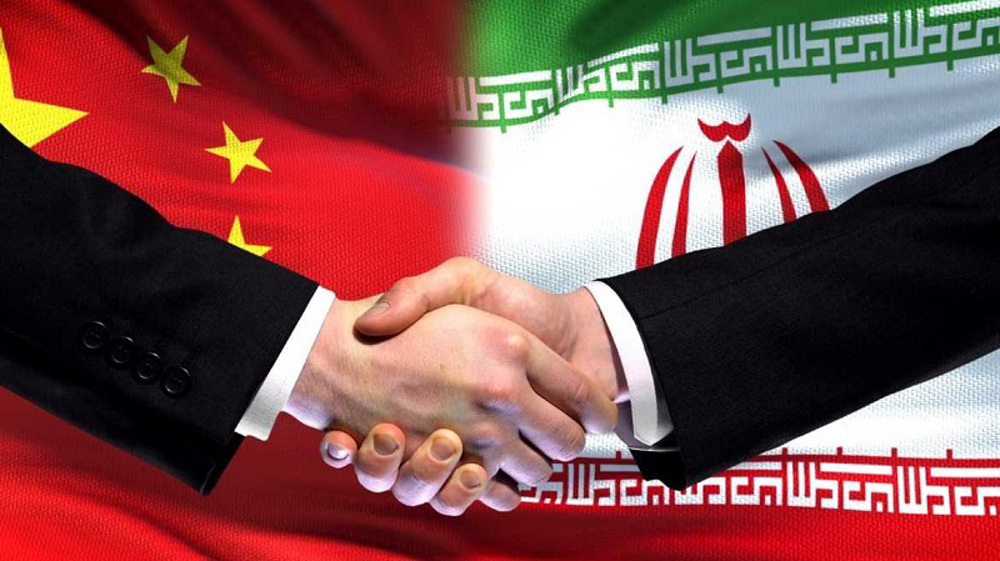
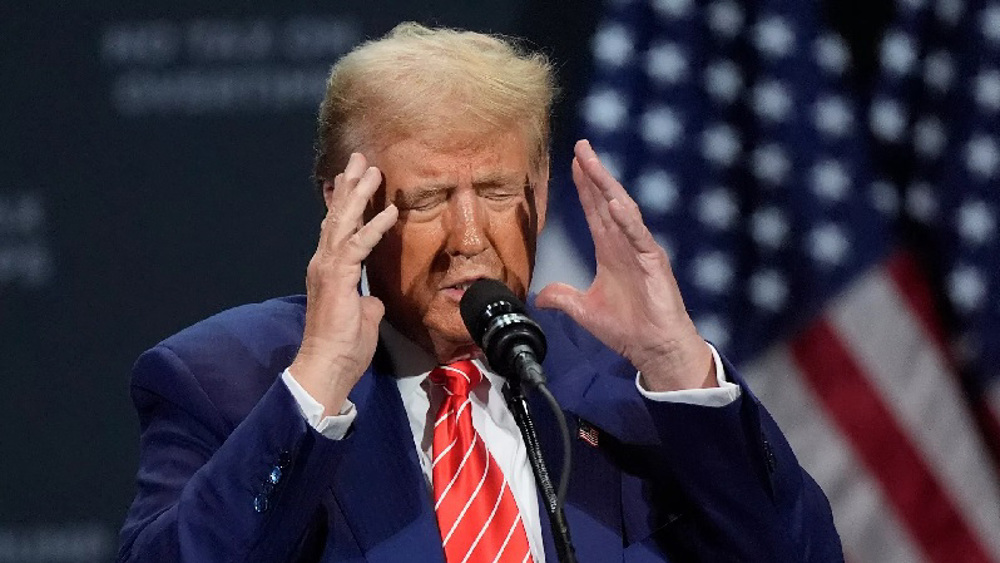
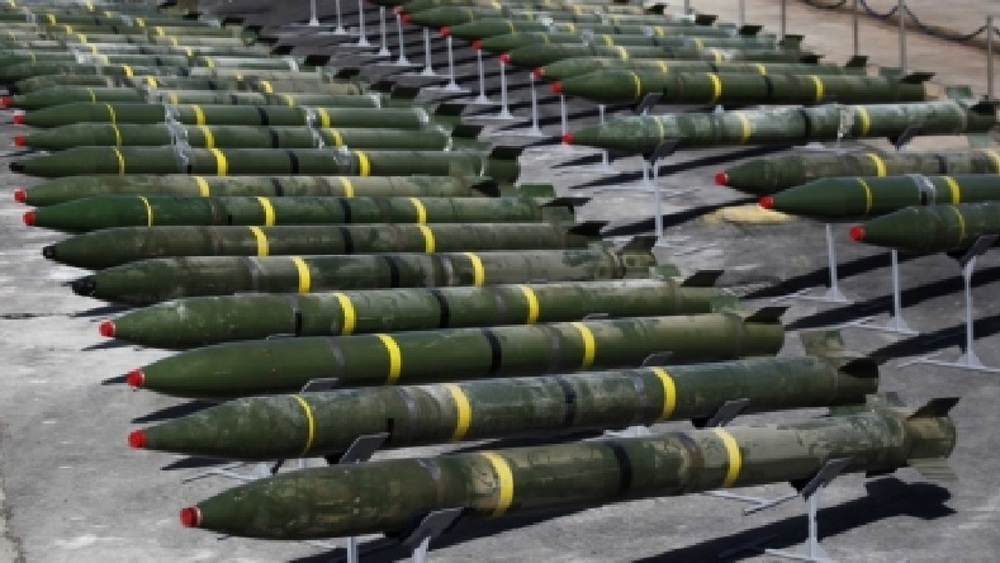
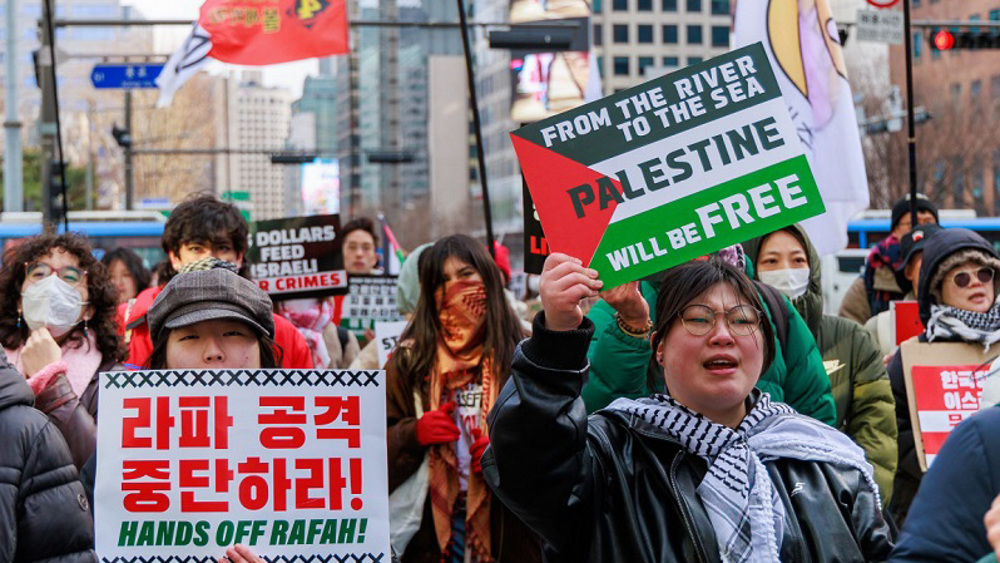




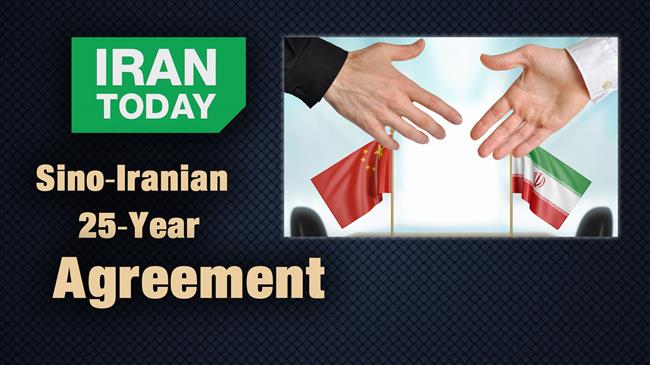
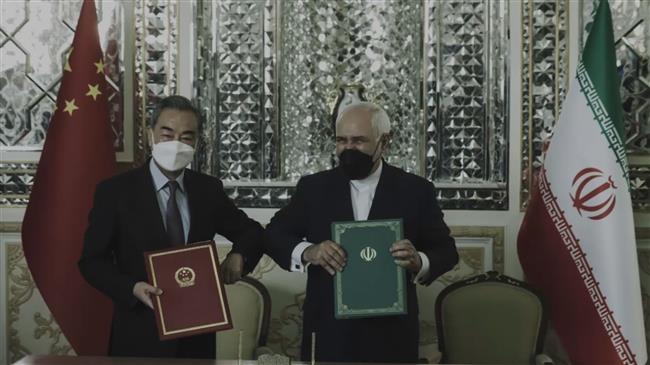
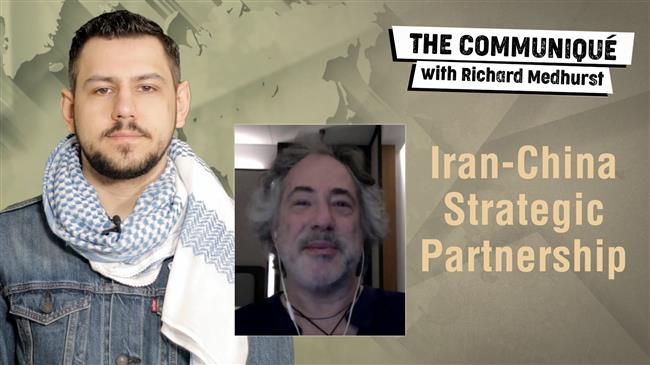

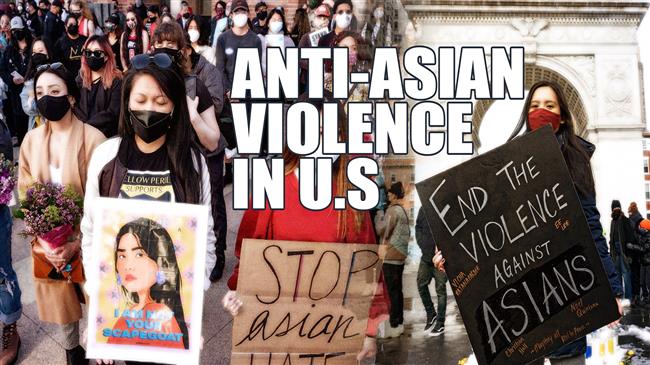
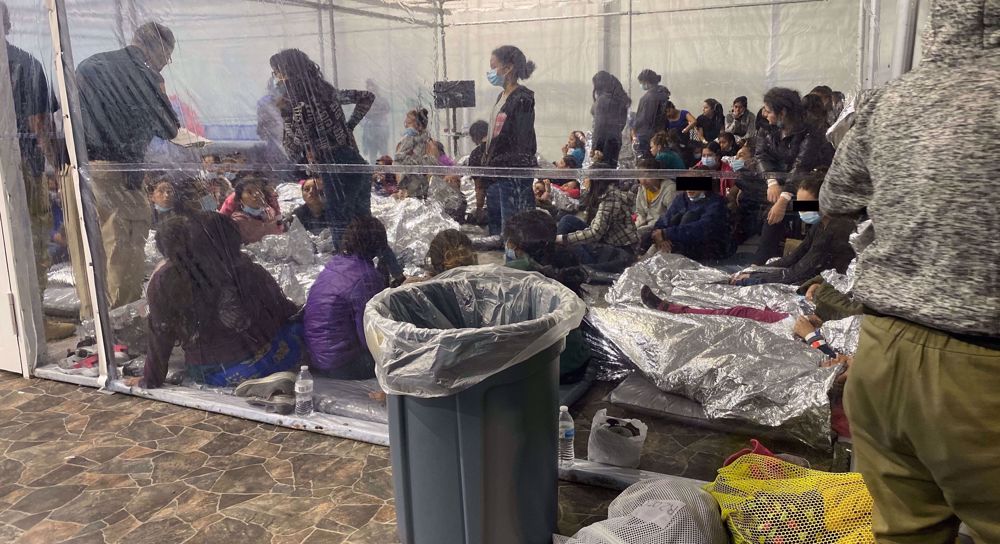

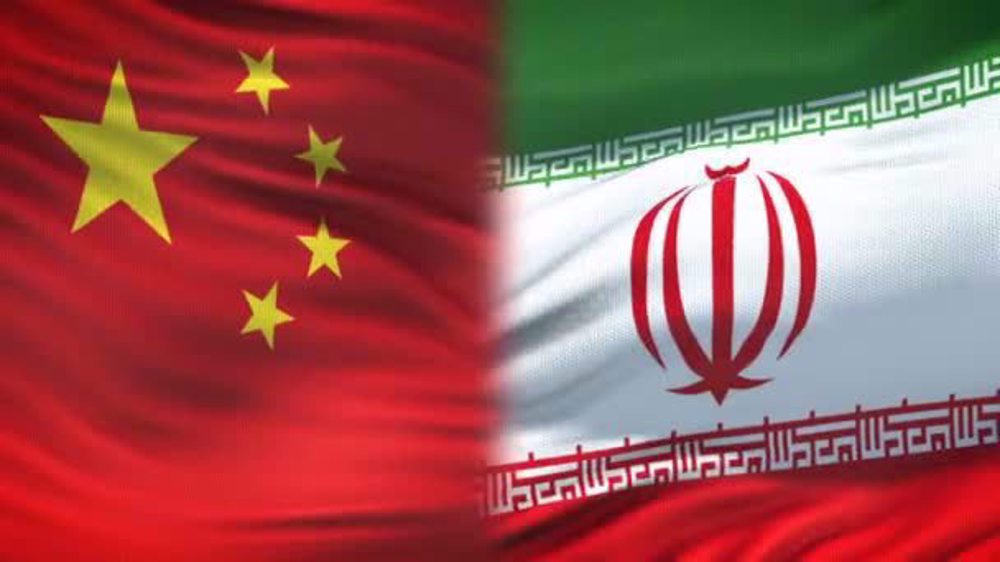

 This makes it easy to access the Press TV website
This makes it easy to access the Press TV website